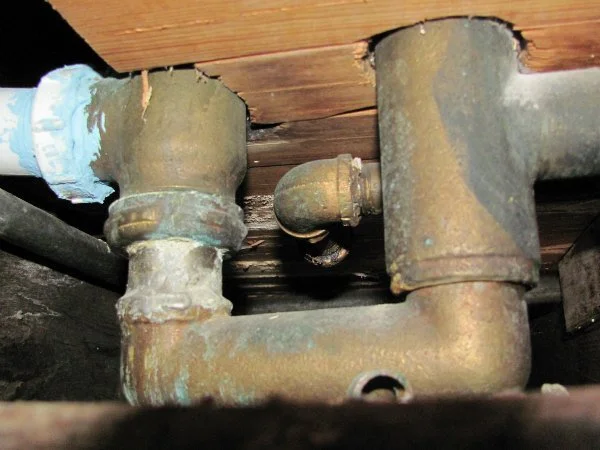How to take care of the lawn?
RH Business Marketing Solutions
The lawn is the showcase of any home. No matter what size or style you have arranged your garden, the lawn is sure to be an important part of it. However, to make it look aesthetically pleasing, you need to take good care of it. How? Fertilizers and regular mowing are not enough. Over the course of the year, you should perform a number of maintenance procedures. They will ensure a perfectly filled lawn, no cavities, and lush grass.
If you're seeking expert guidance on enhancing your lawn, consider consulting with the best landscaping service. Their expertise can elevate your lawn care routine, providing specialized insights and services to cultivate a truly remarkable outdoor space.
If you want to learn more useful gardening tips, check out this site.
Why is lawn care essential?
Having a lawn until now you have associated only with mowing? Without a doubt, this is a very important and also one of the most frequently performed procedures. At the same time, however, mowing alone is not enough to take proper care of the landscape. Trimmed grass will not look perfect without other activities.
Depending on the season, you should perform other maintenance procedures. Some of them are used to replenish cavities. Others improve the condition of the soil itself and ensure better grass growth. Regular fertilization and watering are as important as mowing. After all, while the latter activity helps tame grass that is too tall, the other activities ensure proper lawn growth.
If you want a perfect lawn in your garden or in front of your house, take care of proper grass growth. With a few essential treatments, you will create an exceptional space. The lawn will become the showcase of your home. It can also be a place for children to play or for picnics or garden parties.
How to take care of the lawn throughout the year?
You should focus on your lawn not only during the season. Even before the intensive grass growth begins, certain activities will help you prepare the soil for a lusciously green and perfectly filled lawn. What is the best way to spread out the work during the year and how to take care of the lawn in the spring?
Scarifying
As everything awakens to life and spring begins to manifest itself in growing flowers and tree buds, it's time to take the first action with the lawn. After winter, the turf is mostly ugly and yellow. Such a lawn will not impress anyone. However, you can quickly change its condition.
Scarifying is a procedure that involves combing the lawn. This means removing withered blades of grass. Scarifying is combined with cutting the turf to a depth of 5 to 7 centimeters. With this activity you will remove compacted, dead grass or so-called felt. You will also loosen the turf.
You can perform scarifying manually with a special rake. For a larger area, it is better to reach for a cultivator.
Aeration
Aeration follows immediately after scarification. This is the process of pricking the turf with a hand tool. It can be, for example, rakes. Punctures are made to a depth of 10 centimeters. The first aeration is good to perform in the 2nd year after the establishment of the lawn. You can perform it during spring and late summer. It is important that the grass is cut to a height of 3 centimeters beforehand.
With this treatment, you will improve the soil structure, aerate the root system and stimulate the grass to grow.
How to perform this procedure and which tools are best to use? You will find out in our article. Stock up on tools that will make this task easier for you.
After aeration, perform sandblasting. It involves filling the holes after aeration with sand. It improves the permeability of the soil.
Filling in the gaps
If you're wondering how to take care of your lawn after winter, consider its overall condition. Even the most well-maintained lawn will not do without cavities in the soil after the winter. The first step is to remove the dead grass. Then replace the soil with a new one and sow a regenerative seed mix.
Fertilization
Fertilization is one of the most important activities that are performed during lawn care. It takes place at least several times during the year. The first one takes place in the spring. After the turf is renewed and the soil is prepared for the new season, you can perform a treatment that will awaken the grass to grow. It will also allow you to fill in winter damage more quickly.
In early spring, but also in late autumn, it is good to spread a thin layer of compost. The organic matter will attract earthworms. It is they who will bring the matter deep into the soil. Along with it, nutrients will also reach the soil.
How to take care of grass when you do not have compost? A substitute for it can be bio humus or artificial mineral fertilizers, which are labeled as spring fertilizers. These particular fertilizers contain a lot of nitrogen, which is responsible for the rapid growth of the grass.
Fertilization is the answer to the question of how to take care of grass from a roll and from seeding. In both cases, the right fertilizer is able to transform the appearance of the lawn.
Mowing
The season undoubtedly has the most work waiting for you. How do you take care of your lawn in spring and summer? A regular activity you must perform is mowing. Without it, the grass loses its beauty and resilience. The optimal height of a home lawn is about 3.5-4 cm. This requires mowing on average every 5 days.
Give up mowing below 3.5 cm. Short-cut blades turn brown very quickly during drought. You will also not cut grass 10 cm high. During one mowing you can shorten the lawn to half the current height. Therefore, it is better to mow more regularly.
Mowing before winter is important to prepare the lawn for this season. You can read more about this process in another article.
Watering
If it does not rain, the lawn will require watering. It is best to do it every 2-3 days, but with high intensity. There should be 8-12 liters per square meter of lawn. Too frequent watering of the lawn with less water is a mistake. First of all, the water does not have a chance to penetrate into the deeper layers of the soil. In addition, the grass, which is accustomed to less frequent watering, will better develop its root system.
Do not water your lawn at noon. Because of the high temperature, the water will evaporate too quickly.
Weed removal
Even the densest and perfectly trimmed lawn will not look good if you leave weeds on it. Removing them is one of those activities you should do regularly. You will learn effective ways through the content of our article.
How to take care of the lawn and prevent weeds?
Fighting weeds is a difficult task that requires repetition. Often, too, the struggle seems uneven and the task - is doomed to failure in advance. Meanwhile, there is a simpler solution. We are talking about prevention. First of all, it is less labor-intensive and definitely more effective than the subsequent removal of weeds. What does it consist of?
First of all, before establishing a lawn, make sure that the soil is well-loosened and exposed. A very good solution is to dig the soil to remove young weed seedlings. On the other hand, you can fill the vacant spots with bark or plant cover crops in them. Good choices will be lavender, hornwort, phlox, and periwinkle.
Regular fertilization also has the effect of reducing weed growth. Fertilized grass grows well. As a result, it becomes a very strong competition for weeds and drives them out of the lawn. Regular mowing, on the other hand, is able to permanently eliminate weeds that do not like frequent trimming. So if you're wondering how to take care of your lawn, mowing will definitely be one of the best solutions.















